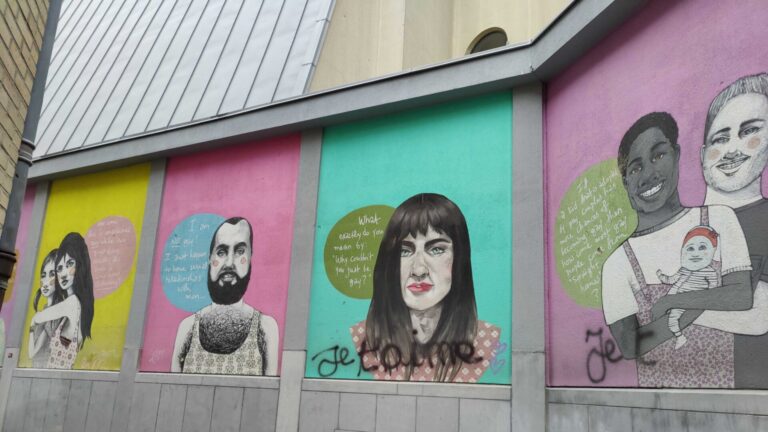In December 2021, the Play it Loud! project, organised by Jeunesses Musicales International and the International Music Council (IMC), continued in Brussels, with the evaluation week dominated by hands-on, participatory, observation-based sessions alongside interactive group work.
The main objective of the Play it Loud! programme within the music sector is to create a safe environment for all, a level playing field for all, through music programmes, using music as a tool. During the summer training, the participants worked together to implement a Play it Loud! project in their own country in the autumn. (The Hungarian team, organised by Dominika Ács, Anna Belinszky, Mária Kaposi, Zsófia Pilhál, and Zsuzsanna Szálka, held an all-arts evening at the Három Holló kávézó (Three Raven Café) entitled Breaking norms, breaking forms, with the aim of starting a dialogue about norms—visible or invisible, obvious or hidden—that pervade classical music.)
At the Brussels meeting, participants reported on their own programmes, inspiring others to take the next steps, to continue. The non-exhaustive list of examples of projects from partner organisations is as follows: Sweden held a festival day with female performers, Macedonia provided two days of professional training for cultural organisers and Brussels promoted the integration of socially disadvantaged people.
Participants reflected together on what they could take credit for as successes, who they reached and to what depth, and what they could learn from the events. And the project’s professional leaders, drawing on the experiences of the partner countries, issued a guidebook structuring the main objectives, and presenting examples of good practice. The content of the technical material was presented to participants at the December training.
In addition to the exchange of experiences, the young people visited many interesting activities. They were introduced to the Rainbow House in Brussels by one of the leaders of the organisation, got an insight into their active programmes, and had a tour of the pub run by Rainbow House—the income from which contributes significantly to the upkeep of the organisation. One of the meals was served in a special establishment called “Les uns et les autres” (the one and the other). The social restaurant has an extremely friendly environment, and the menu has meals that are priced differently so that customers can pay according to their means—making healthy meals more widely available.
In addition to lots of interactive small group, large group and individual tasks, there was also room for making music together, and on the last evening the enterprising ones all had the chance to present a performance, where the versatility of the group really showed: from classical music to traditional folk dance, to pop singers, all kinds of styles were represented. Spontaneous joint productions were also performed, where the Hungarian classical music performer improvised a contemporary dance to the live music of the Dutch electronic composer, which was a huge success. Perhaps this is where the unity of the group is really conceivable, and where we can see the encouraging vision that despite our differences, we can find common ground and that in music all people can become one.
During spring 2022, the project will continue with events in the partner countries, so we will soon be reporting on the events in Hungary.











